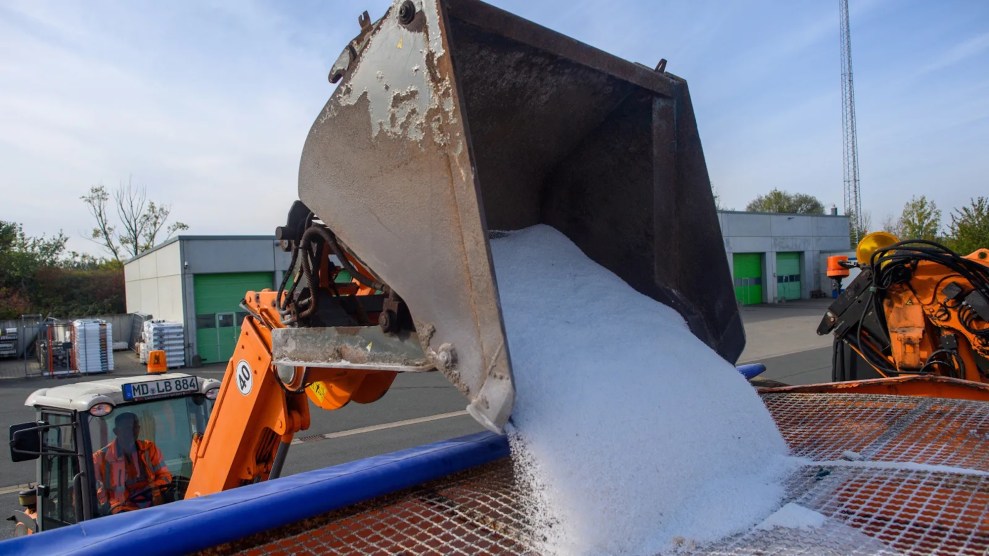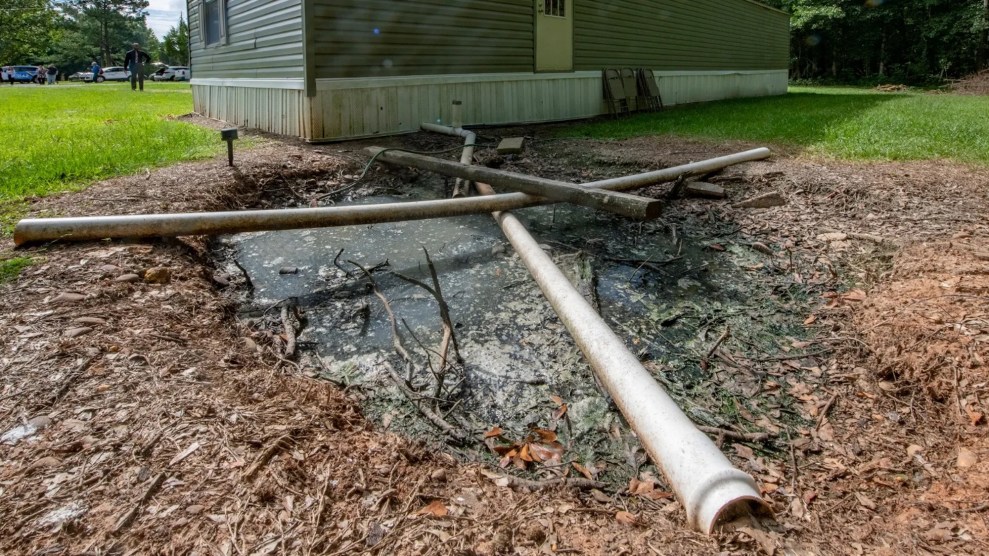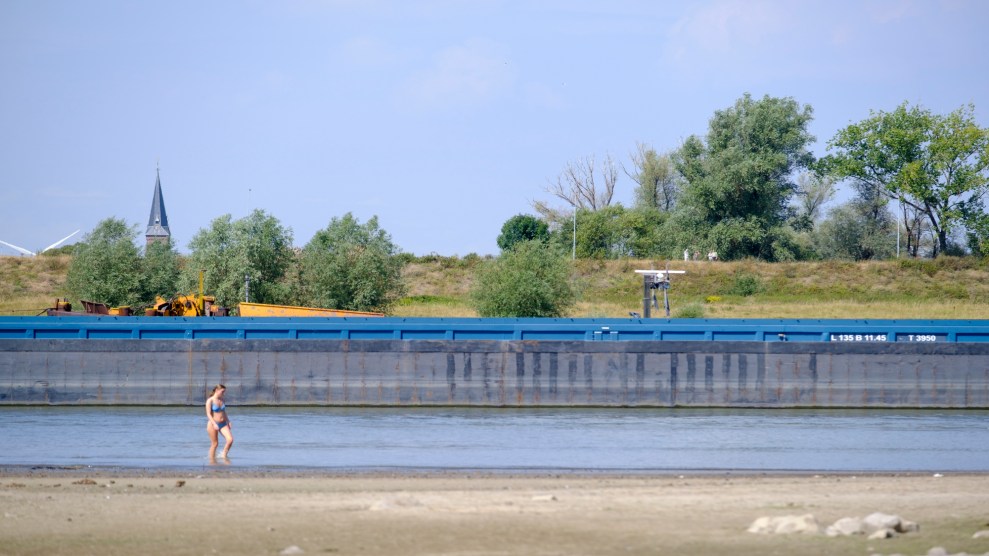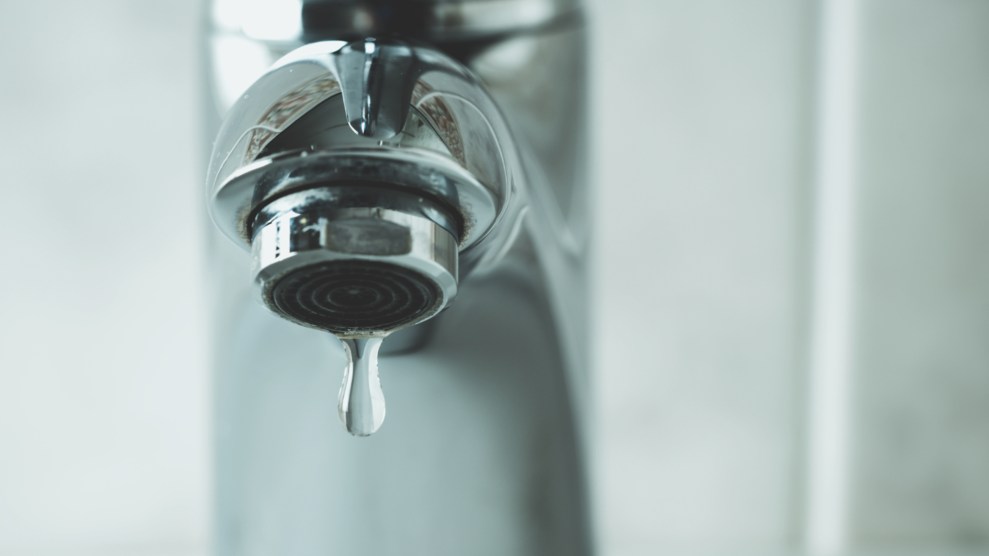
Klaus-Dietmar Gabbert/picture alliance/Getty Images/Grist
This story was originally published by Grist and is reproduced here as part of the Climate Desk collaboration.
Humanity is messing with the Earth’s “salt cycle,” with potentially dangerous consequences for drinking water supplies, crop production, and ecosystems. That’s according to a new study published in the journal Nature Reviews Earth & Environment on Tuesday. It’s the first time that scientists have documented the extent to which humans have changed the salt content of the land, water, and air across the globe.
Researchers in Maryland and four other states found that 2.5 billion acres of soil around the world have gotten saltier, an area roughly the size of the entire United States, and it’s stressing out plants. Salt is even getting kicked up into the air: In arid regions, “lakes are drying up and sending plumes of saline dust into the atmosphere,” such as the Aral Sea in Central Asia, the study says.
Salt pollution presents an “existential threat to our freshwater supplies,” according to the study. It can corrode drinking water pipes, exacerbating lead pollution in water supplies, as it did in Flint, Michigan. “They had all these lead pipes that were leading to their houses and the chloride would basically pull the lead into solution,” Sujay Kaushal, the study’s lead author, told the Washington Post. “They didn’t add enough corrosion inhibitor, and then kids had high levels of lead in their blood.”
Before humans came along, salt moved to the Earth’s surface over long geological periods, surfacing as rocks broke down and cycling through the water and air, available for the animals and plants that needed it. Some research suggests that salt was key to the development of life on Earth.
But that process has been accelerated by industrialization. Salinization has been supercharged by a host of factors: irrigation, deicing roads, mining, wastewater treatment, and even the use of salt-laden household items like detergent. The researchers looked at lots of different kinds of salts, like calcium and magnesium, not just the sodium chloride that sits in the salt shaker on your dinner table. And they found so much of it, they worried that salt could cause “serious or irreversible damage across Earth systems.”
In coastal areas, sea-level rise can send salty ocean waters into the groundwater, making it undrinkable. In the United States, aquifers near the coastline—many of which are below sea level—supply 95 million people with drinking water. It only takes 2 or 3 percent seawater to make the groundwater undrinkable, and removing salt from water is difficult and expensive.
The rise of saline dust in the air presents a different problem for water supplies. Since salt can alter the freezing temperature of water, this salt-rich dust could accelerate snowmelt, according to the study, presenting a problem for communities that rely on snowpack for their water supply, like many in the western United States.
The biggest contributor to the issue in the US? Dumping salt on the road for safer driving during winter weather. Road salt made up 44 percent of the country’s salt consumption from 2013 to 2017, the study says. That salt helps make roads less icy, but it eventually runs off and contaminates streams and drinking water.
There are methods available to lessen the environmental impact while helping prevent cars from skidding across roads. In Minnesota, the state has experimented with “smart salting”—training workers to apply salt without wasting any—to cut salt usage by 30 to 70 percent. Washington, D.C. uses beet juice brine, with a lower sodium content than plain old salt. Wisconsin, playing to character, has incorporated cheese brine, preferably from provolone and mozzarella, into its efforts to deice roads with less salt.












